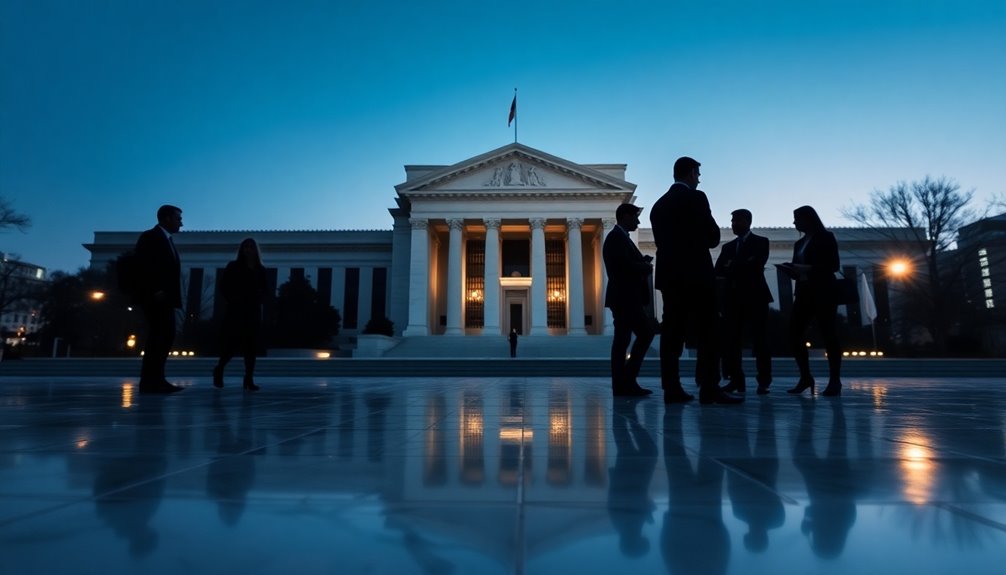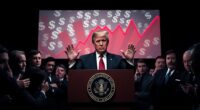Setting up a Federal Crypto Reserve might seem counterintuitive if it only promises short-term rewards. However, consider the potential impact on investor confidence and market stability. By adopting cryptocurrencies like Bitcoin, the government could signal its commitment to innovation and attract institutional investments. But what happens when the volatility of digital assets clashes with economic realities? The implications could be far-reaching, making this an issue worth exploring further.

As the concept of a Federal Crypto Reserve gains traction, you might wonder how it could reshape the landscape of digital assets in the short term. The idea of a strategic reserve of cryptocurrencies, particularly Bitcoin, serves as a financial hedge and a potential support for the U.S. dollar. Given Bitcoin's historical context, this concept isn't entirely new; it emerged during Bitcoin's early days and has gained momentum with corporate and sovereign adoption. Additionally, the Law of Attraction principles suggest that positive investment sentiment could lead to greater market optimism.
In the short term, establishing a Federal Crypto Reserve could significantly impact Bitcoin's price. With government backing, you might see a surge in confidence among investors, driving prices upwards. This possibility of immediate profit can't be ignored. Furthermore, a strategic reserve could elevate the U.S.'s influence in the crypto market. By positioning itself as a leader in digital assets, it might attract more institutional investment and foster a more robust market environment. The proposal to halt SEC's labeling of cryptocurrencies as securities could further enhance this environment by reducing regulatory uncertainty.
Another appealing aspect is economic diversification. A Federal Crypto Reserve introduces a new asset class for government reserves, potentially reducing reliance on traditional assets like gold or oil. This diversification can help stabilize government finances, especially during economic turbulence. Plus, by encouraging the integration of digital assets into the financial system, you're looking at a landscape ripe for innovation and technological advancement.
However, while these short-term rewards sound enticing, there are challenges and criticisms to consider. One significant concern is market distortion. Favoring Bitcoin over other cryptocurrencies could hinder innovation and limit the growth of alternative digital assets. Additionally, managing Bitcoin's notorious volatility poses a challenge for long-term investment strategies. The potential for drastic price swings could expose taxpayers to financial risks that many might consider unacceptable.
You might also question whether Bitcoin, which lacks the critical economic input value of traditional reserves, truly offers a worthwhile alternative. Funds allocated to a crypto reserve could potentially be used more effectively in other economic sectors, driving better returns for taxpayers.
Ultimately, while a Federal Crypto Reserve promises short-term rewards, its long-term implications remain uncertain. The potential for financial stability and increased geopolitical flexibility could be overshadowed by the risks inherent in cryptocurrencies. As you think about this concept, consider both the immediate benefits and the broader economic landscape it could influence, weighing them against the possible pitfalls of such a bold financial move.









